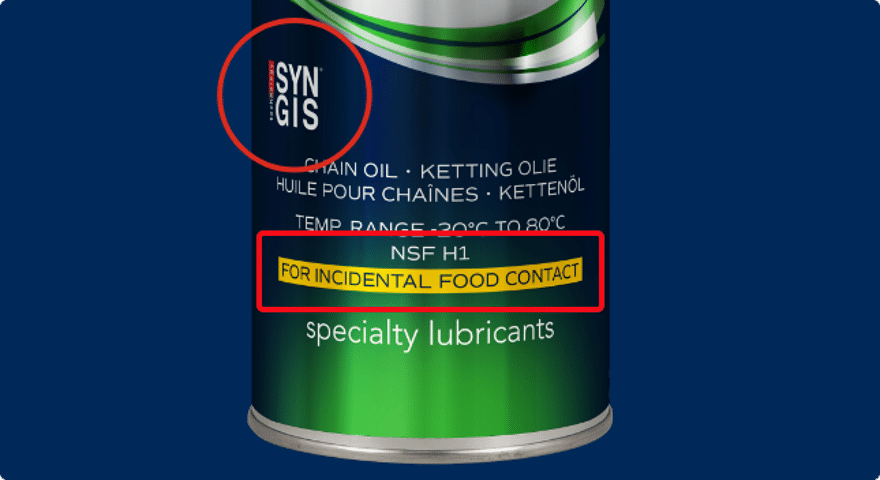El término “Foodsafe” sugiere que un producto de limpieza puede entrar en contacto directo con los alimentos sin riesgo de contaminación o efectos sobre la salud. Esta es una suposición equivocada. En realidad, ningún producto de limpieza —ni siquiera aquellos con aprobación NSF— está diseñado para entrar en contacto directo con los alimentos. La aprobación NSF indica que el producto cumple ciertas normas de seguridad y calidad, pero no significa que sea automáticamente seguro para el contacto directo con alimentos.
¿Qué significa la aprobación NSF?
Para usar correctamente y de forma segura los productos de limpieza en la industria alimentaria, es importante entender bien el sistema de aprobación NSF. NSF es una certificación independiente que garantiza que los productos cumplen con estrictas normas de salud pública y seguridad. Existen diferentes categorías NSF, cada una aplicable a distintos escenarios de uso. Por ejemplo:
- NSF A1: Limpiadores generales para zonas de procesamiento de alimentos, que deben enjuagarse completamente de las superficies.
- NSF D2: Desinfectantes que no siempre requieren enjuague con agua.
- NSF H1: Lubricantes seguros para contacto alimentario incidental, con un nivel máximo de contaminación de 10 partes por millón (ppm). Algunos lubricantes NSF H1 también tienen excelentes propiedades limpiadoras.
NSF H1 para contacto alimentario incidental
Los productos aprobados con categoría NSF H1 son aptos para su uso en situaciones donde puede haber contacto incidental con alimentos. Están formulados para garantizar que cualquier contaminación accidental no supere el límite seguro de 10 ppm. Eurol ofrece una gama de lubricantes y limpiadores con aprobación NSF H1. Un ejemplo de ello es el spray Eurol Swift Clean 110 FD, que funciona como lubricante y limpiador, siendo muy versátil para aplicaciones en la industria alimentaria.
Verifica el logotipo de NSF
Para los usuarios finales en la industria alimentaria, es fundamental comprobar si un producto de limpieza cuenta con la aprobación NSF correcta. Esto no solo significa verificar si el logotipo de NSF aparece en la etiqueta, sino también entender lo que implica cada categoría de aprobación. La presencia del logotipo NSF por sí sola no significa que un producto sea automáticamente “Foodsafe”.
Comunicar e informar
Los proveedores de productos de limpieza para la industria alimentaria deben formar a su equipo comercial y a sus clientes sobre el sistema de aprobación NSF. Una comunicación clara sobre las limitaciones y el uso adecuado de los productos con certificación NSF ayuda a evitar malentendidos y aplicaciones incorrectas. Además, deben ser capaces de explicar las diferentes categorías NSF y asesorar en la selección del producto adecuado según las necesidades específicas del cliente.
Conclusión
En la industria alimentaria, mantener altos estándares de higiene es fundamental. Aunque la aprobación NSF es un buen indicador de seguridad y calidad del producto, no significa automáticamente que el producto sea “Foodsafe” en términos de contacto directo con alimentos. Comprender el sistema de aprobación NSF es clave tanto para usuarios finales como para proveedores. Al seleccionar los productos adecuados y utilizarlos de forma responsable, la industria alimentaria garantiza una producción de alimentos más segura.

